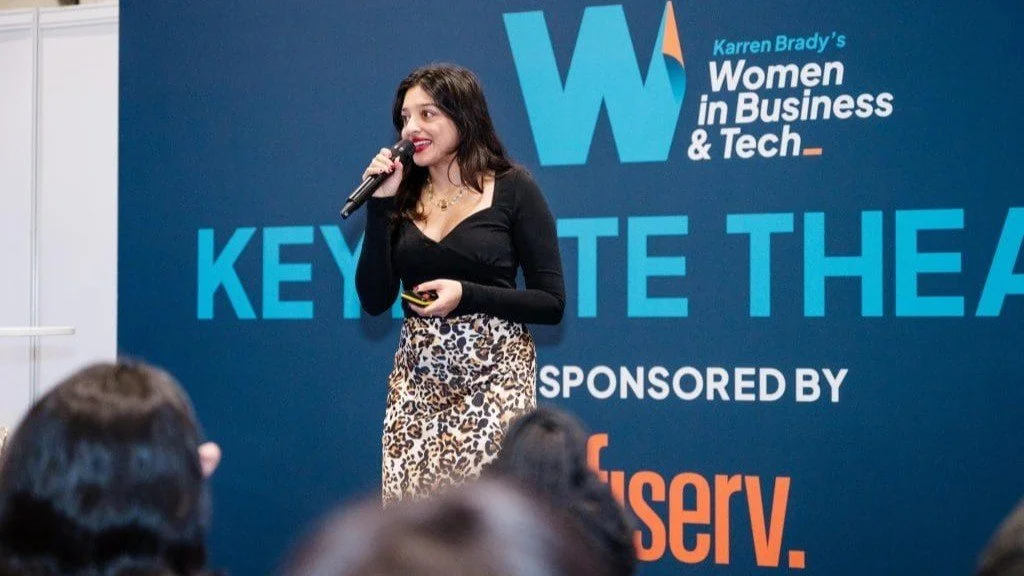Neurodivergent Networking: 7 Ways to Network with Neurodivergent Professionals
Neurodivergent Networking: 7 Ways to Network with Neurodivergent Professionals
Networking is often mentioned as the secret to career growth. But what happens when traditional networking spaces unintentionally exclude neurodivergent professionals?
I’ve seen this firsthand. Early in my career, I attended networking events that rewarded extroversion, small talk, and immediate charisma, skills that don’t come naturally to everyone. I realised then that professional networking often overlooks the talents, insights, and creativity of neurodivergent individuals.
This isn’t a niche problem. Inclusion and neurodivergent networking are critical for career growth, innovation, and diverse leadership pipelines. Studies consistently show that organisations embracing neurodiversity outperform their peers in creativity, problem-solving, and employee engagement.
So, how do we build neurodivergent networks that are both inclusive and effective?
Here are 7 strategies for networking with neurodivergent professionals:
1. Redefine Networking: Inclusive Strategies for Neurodivergent Professionals
Professional networking doesn’t have to mean crowded afterwork pub time or long elevator pitches. For neurodivergent individuals, structured, low-pressure formats, like smaller breakout sessions, one-on-one mentorships, or online communities, can create better, meaningful connections.
Think of networking as building trust and exchange, not just exchanging business cards. By reimagining networking this way, we unlock career growth for everyone.
At the LMF NETWORK (Like Minded Females), we do this through regular coworking events for a handful of participants and a breakfast in the morning for those who can only stay a short while.
2. Prioritise Accessibility in Networking Events
Accessibility is inclusion in action. Ensure your events provide options like:
Clear agendas and discussion topics in advance
Quiet spaces for processing conversations
Visual aids or written summaries
As a speaker, in most cases I get access to a speaker room, but I encourage event organisers to create a quiet space for people who want to gather their thoughts - a tech free and no TikTok zone please! When networking spaces accommodate diverse communication styles, neurodivergent professionals are empowered to shine.
3. Leverage Digital Platforms for Neurodivergent Networking
Digital networking platforms can reduce barriers to entry. Online communities, LinkedIn groups, or curated mentorship apps allow professionals to connect in their own preferred way, giving them time to process, respond, and engage authentically.
Strategically using digital tools supports career growth by expanding networks without relying solely on in-person social cues.
I’ve noticed many of our LMF NETWORK (Like Minded Females) community members feel more comfortable connecting first on LinkedIn or Slack before meeting in person. Digital spaces give them that buffer to listen and learn before they have to lean into the conversation.
4. Create Mentorship and Peer Networks that Value Neurodiversity
Formal mentorship programs that match neurodivergent professionals with experienced allies can accelerate professional networking. Pairing mentors and mentees based on shared goals rather than traditional social traits ensures that talent is recognised on merit.
A strong network built on understanding and inclusion directly enhances career growth opportunities. Not another plug, but the LMF NETWORK (Like Minded Females) has a 90% success rate when it comes to helping people achieve their goals through our career programmes, designed and delivered by a neurodivergent. And most of the updates or improvements have come directly from our community, because listening feeds into learning!
5. Train Leaders on Inclusive Networking Practices
Leaders and managers shape professional networking culture. Training sessions can focus on:
Recognising neurodivergent communication styles
Avoiding biases in introductions and referrals
Encouraging participation in different settings
Leaders who champion inclusive networking create pipelines for underrepresented talent and foster innovation. Before I carry on, let’s be clear - this training should be delivered by a neurodivergent person with lived or learned experience or both and paid, it isn’t a freebie and nice to have but a necessity with the increasing rates of neurodivergent folks in shared spaces.
6. Celebrate Different Communication Styles in Professional Networking
Neurodivergent professionals may communicate differently, whether through written channels, thoughtful pauses, or unconventional problem-solving. By valuing these styles, we strengthen networks and ensure that everyone’s expertise is visible.
In all my interactive sessions online and offline, I hold space for a shared google document, an anonymous Slido tool and my email should people want to connect and contact afterwards. This approach is not only inclusive, but it actively enhances professional networking and career growth for all participants.
7. Measure Success Beyond Traditional Metrics
Traditional networking success is often measured by quantity: number of contacts or connections. For inclusive, neurodivergent networking, focus on quality:
Depth of relationships
Opportunities for mentorship
Collaboration on meaningful projects
Measuring success this way reinforces a culture of inclusion while maximising career growth for neurodivergent professionals. Instead of aiming for 50 business cards, I now measure networking success by whether I left with one meaningful conversation I can follow up on. Plus, the 321 rule has changed the way we network - 3 conversations, 2 connections and 1 follow up a month - manageable and life changing!
Sonya Barlow x Unprepared to Entrepreneur
Building a Future of Inclusive Networking and Career Growth
Networking is no longer about who you know. It’s also about how accessible and inclusive your network is. By intentionally designing professional networking practices that embrace neurodiversity, we unlock talent, drive innovation, and fuel career growth for everyone. Plus, it encourages neurodivergents like me to understand our own networking style and open up spaces for others, to listen, learn and lean into conversations and recommend others attend also. It’s about making recommendations and encouraging attendance where inclusion truly exists.
On the flip side, there are some networking events that I have discouraged people from because of their practises – and word gets around. If 80% of your opportunities come from recommendations within your network, remember this: word of mouth has never been stronger!
💬 I want to ask you: How do you like to network?
📩 This newsletter was written by Sonya Barlow, entrepreneur, author and presenter. Work with Sonya Barlow on business strategy, keynotes and campaigns. Email: hello@sonyabarlow.co.uk
Sonya Barlow is an award-winning entrepreneur, presenter and author with over 100K followers. She hosts her self-titled YouTube show "The Sonya Barlow Show", authored the business book "Unprepared to Entrepreneur" and runs a business inclusion consultancy and networking app the "LMF Network". You can work with Sonya for campaigns, content and conversation. Connect via email 📩 - Hello@SonyaBarlow.Co.Uk.


